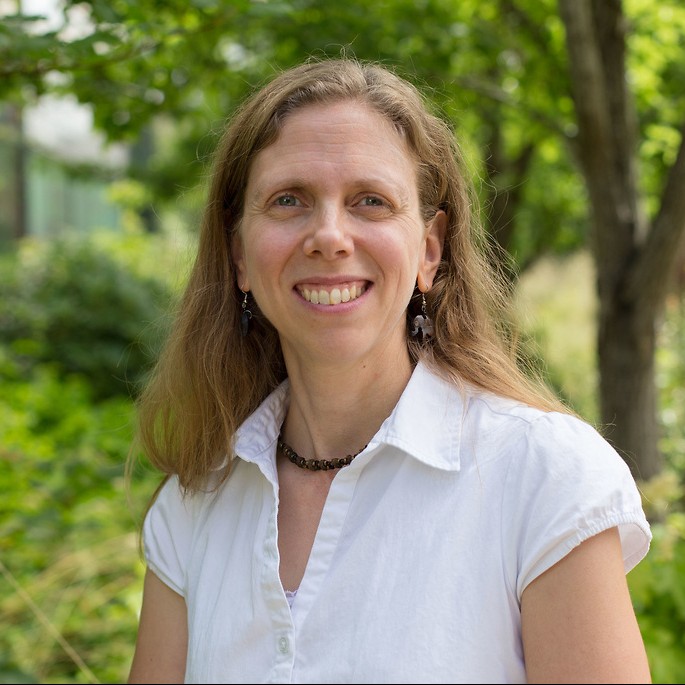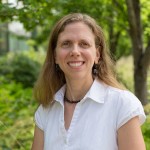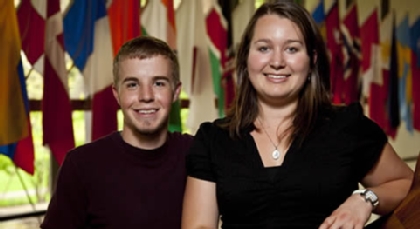Page 115 • (1,711 results in 0.799 seconds)
-
methodologies. Emphasis will be placed on developing evidence-based practitioners that critically utilize the scientific literature in their professional endeavors in Kinesiology. (4) KINS 505 : Inclusive Leadership The course is designed to explore cultural factors that influence people and human interaction. Specifically, students will study the role of diversity and the experiences of people with marginalized identities in United States sport organizations. The various ways that people may differ and how
-
literature, music and political science, history and business, or geoscience and philosophy. To see a list of past Peace Scholars and their majors, please go to www.peacescholars.wordpress.com. How many Peace Scholars are selected?There are two Peace Scholars selected each year. What are the costs of the program?Airfare to and from Norway is paid. In addition, lodging, food and tuition are paid by the program while students are in Norway and costs would be covered if an event occurs in the U.S. Any
-

. But we had a lot of tests and exams, and I failed them. It was really tough! [Laughs] So, I was disillusioned at that point. I discovered that I liked teaching. I became an elementary, middle, and high school teacher [for several years]. I wasn’t set on being a university professor at first.AG: Did you have a mentor who helped shape your vocation?JRO: Yes, and that mentor eventually became my dissertation supervisor. I took undergraduate literature classes and that is where my initial passion for
-
Learn More: Yaka Ndeemba MaskAfter a long history of forced migration and union with other groups, the Yaka have been an independent society since the 19th century. Living in the northern Congo, the Yaka are primarily hunters, although they also practice small scale farming. The tight-knit social system of the Yaka consists of a chief and his second in command who delegates to lineage chiefs. The Yaka are known for their masks, sculpture, and decorative everyday objects. Also, the
-

communities of methane-oxidizing bacteria in Lake Washington sediment, focusing on techniques allowing for estimating population sizes of different subgroups of these bacteria. Since her arrival at PLU in the Fall of 2002, Dr. Auman has primarily taught introductory biology and microbiology courses. As a microbial ecologist, Dr. Auman’s professional interests focus on studying microbial communities in natural environments with the goal of understanding how the microbes contribute to global processes and
Office HoursMon - Fri: -Area of Emphasis/Expertise -

covering the Open. The event had a similar workflow and amount of content to be written. I focused primarily on the fan experience, writing items of varying lengths about the sights and sounds around Chambers Bay. It was really exciting to be part of an internationally renowned event here in Pierce County’s backyard. The energy level was high and I was honored to be a member of such a rock star coverage team that spent several years preparing for the championship. Can you explain how your work at The
-
Lutheran educational institution on the western frontier of America could play in the emerging future of the region. They wanted the institution to help immigrants adjust to their new land and find jobs, but they also wanted it to produce graduates who would serve church and community. Education—and educating for service—was a venerated part of the Scandinavian and Lutheran traditions from which these pioneers came. Although founded as a university, the institution functioned primarily as an academy
-

bacteria in Lake Washington sediment, focusing on techniques allowing for estimating population sizes of different subgroups of these bacteria. Since her arrival at PLU in the Fall of 2002, Dr. Auman has primarily taught introductory biology and microbiology courses. As a microbial ecologist, Dr. Auman’s professional interests focus on studying microbial communities in natural environments with the goal of understanding how the microbes contribute to global processes and what products the microbes make
Office HoursMon - Fri: -Area of Emphasis/Expertise -

communities of methane-oxidizing bacteria in Lake Washington sediment, focusing on techniques allowing for estimating population sizes of different subgroups of these bacteria. Since her arrival at PLU in the Fall of 2002, Dr. Auman has primarily taught introductory biology and microbiology courses. As a microbial ecologist, Dr. Auman’s professional interests focus on studying microbial communities in natural environments with the goal of understanding how the microbes contribute to global processes and
Office HoursMon - Fri: -Area of Emphasis/Expertise -

Research Grant. Her hope is to apply her research toward a master’s degree, and eventually doctorate, in religion. Her research project is centered on the early Reformation church ordinances that created the first state-sponsored systems of social welfare. “I am primarily interested in how theological context of each particular city influenced the social reform that it’s government enacted,” she said. She’s excited to be in Germany again. A few years ago she studied abroad there and is looking forward
Do you have any feedback for us? If so, feel free to use our Feedback Form.


